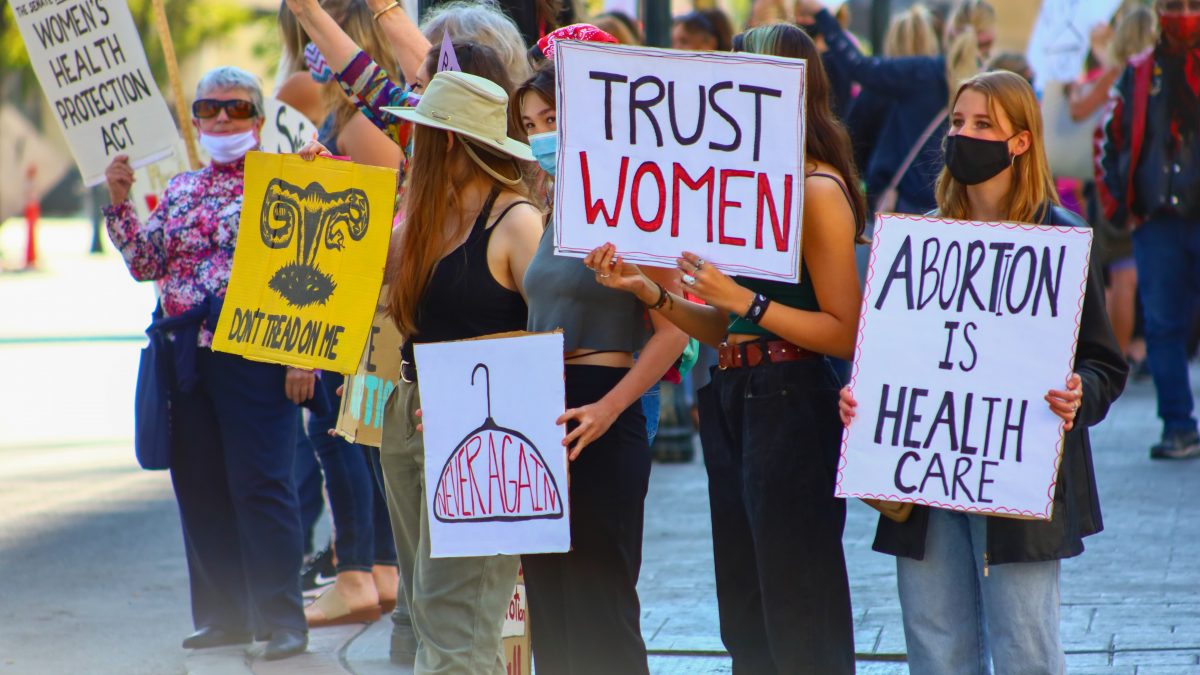
Elon – watch out. Polestar IPO valued at $20 billion
October 17, 2021
Clear the Lobby: What Laws are MPs voting on this week? W/C 18th October 2021
October 19, 2021Article by Nicola Wood
The topic of abortion is one of, if not the most, controversial topics concerning women in modern society. As taboo as the topic is, it goes without saying that it is an important thing that affects many women across the world. In 5% of the world’s countries abortion is strictly prohibited, even when the woman’s life is at risk. Recently, the State of Texas has decided to implement a ban on all abortions after six weeks of pregnancy. This decision has been heavily debated and has prompted many protests and uproar across America. This new development in the law regarding abortion has prompted people to reconsider whether the matter should be a legal one at all.
The landmark case of Roe v Wade set the precedent in America that regulating abortion would be unconstitutional. This case ensured that American women had a distinct right to an abortion during the first twelve weeks of their pregnancy. However, recent events have really brought into question whether this precedent still stands. America’s current president, Joe Biden, has spoken out against the ruling: “Rather than use its supreme authority to ensure justice could be fairly sought, the highest court of our land will allow millions of women in Texas in need of critical reproductive care to suffer while courts sift through procedural complexities”. While the new law does not necessarily criminalise the procedure, it’s vague wording implies lawsuits could be brought against people who aid, abet or perform abortions within the state. This has many indirect implications, studies have shown that in places where abortion is criminalised the rates of abortion do not fall but the safety of the procedure is compromised. In countries where abortion is illegal around 47,000 women die from unsafe abortions every year, many other women suffer long-term health issues. The landmark decision has left many across the state fearing for their futures; a Texan gynaecologist stated to the BBC that “she is worried about the people who will be forced into continuing an unwanted pregnancy – and also worries for herself. ‘I’m afraid for my personal future and the future of my career as a result of this’”. In short, it is clear that this contentious decision will have implications for women across the State and could put many people in precarious situations.
Comparatively, in the Great Britain (England, Scotland, and Wales) abortion has been legally available to women since the Abortion Act 1967. This act stipulated that abortion would be accessible in situations where there is risk to the life of the pregnant woman, to prevent grave permanent injury to the physical or mental health of the woman, to prevent risk of injury to the pregnant woman’s family, or substantial risk that if the child was born it would be severely handicapped by physical or mental disability. It’s worth noting though, that while abortion is technically illegal under the Act without medical permission, the procedure is freely available in practice as abortions are given on the premise that continuing the pregnancy would cause the mother physical or mental harm.
On Monday the 21st of October 2019, abortion was officially decriminalised in Northern Ireland. The UK government voted to repeal sections 58 and 59 of the Offences Against the Person Act 1861. By repealing these sections the Government ensured that abortion would not be treated as a criminal offence in Northern Ireland. This meant that across the whole of the United Kingdom, women could legally access the procedure according to the specifications set out in the 1967 Act.
The ramifications of this decriminalisation were massive. While there had seldom been prosecutions under the 1861 Act in the last few decades, a 1994 survey of GPs in Northern Ireland found that 11% had seen evidence of ‘amateur abortions’. The effects of this decision ensure that Northern Irish women will be able to “access abortion care locally, at an earlier gestational stage and without the fear and stigma which accompanies accessing services deemed unlawful”. Access to medically certified professionals and sanitised spaces greatly decreases the risk of abortions and ensures that the mother is safe. Backstreet (amateur) abortions are one of the commonest causes of maternal mortality, and studies have clearly linked that in countries where abortion is legalised the maternal death-rate falls. It goes without saying that the increased legality of abortions in the UK has been massively beneficial to women and women’s health.
Although, there are many reasons people are against abortion. The most notable arguments against abortion are religious in nature. The Catholic Church holds the position that abortions should only occur in situations where there may be “unintended side-effect of causing a child to die in the womb, such as the removal of a cancerous uterus”. Alternatively, the Catholic Church holds the position that life is a gift from God and every foetus should be treated as such. Many other religions hold similar beliefs to the Catholic church in regard to foetal rights. Religions that oppose abortion with little to no exceptions include the African Methodist Episcopal Church, Assemblies of God, Roman Catholic Church, Church of Jesus Christ of Latter-Day Saints, Hinduism, Lutheran Church-Missouri Synod, and the Southern Baptist Convention. Moreover, some people believe that abortion discriminates against disabled people. A statement from the Disability Rights Commission about the Abortion Act 1967 states: “it reinforces negative stereotypes of disability and there is substantial support for the view that to permit terminations at any point during a pregnancy on the ground of risk of disability, while time limits apply to other grounds set out in the Abortion Act, is incompatible with valuing disability and non-disability equally”.
Overall, in my opinion abortion should be held as a personal medical matter not a legal one. While the arguments against abortion can be reasonable, they should be a personal standpoint and should not be imposed on the public as a whole. Abortion can be a lifesaving procedure and when it is prohibited the risks faced by many women are massive. The new laws being imposed on women in Texas highlight an old-fashioned and frankly outdated view. In the modern world women should be awarded the right to make an informed decision about their pregnancy and should be offered the chance to terminate, should they so choose. Whether abortion is legalised or not many women will still opt to go through with the procedure. It’s worth noting that the legalisation of abortion does not significantly increase the rates of abortion: “the abortion rate is 37 per 1,000 people in countries that prohibit abortion altogether or allow it only in instances to save a woman’s life, and 34 per 1,000 in countries that broadly allow for abortion”. Criminalising abortion does not stop women requiring them and is not effective.





